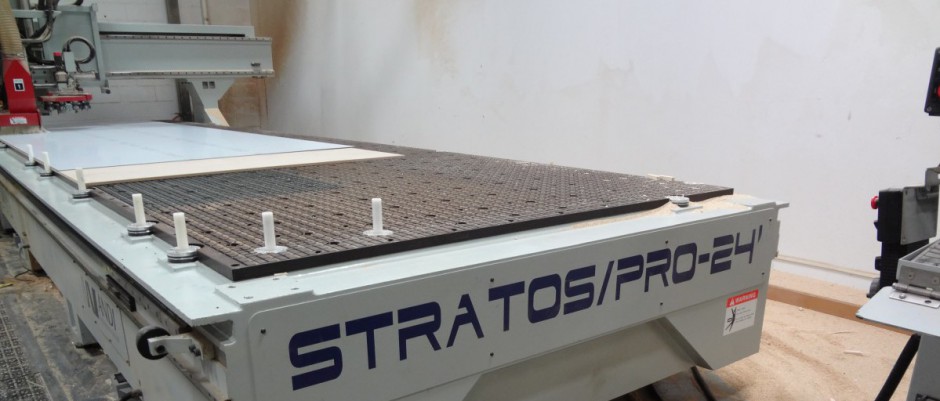During the research phase of my project I was able to interview two industry professionals. Both were heads of a CNC department.
Question 1
How has CNC Technology changed scenery production?
Interview A – The turn around time is very quick, which is essential for a custom shop to be successful.
Interview B – Hand routing large pieces or drilling hundreds of holes is no fun. I takes the monotony out of the production aspect. The carpenters more time to refine their the work, you can say that it’s conducive to creating more skilled workers.
Question 2
Where to you see the technology going?
Interview A – Technology is shaped by demand, I can see it continuing to replace tools.
Interview B – The mechanics won’t change anytime soon. How you control the machine is were the advances are being made.
Question 3
How did you get started in the field?
Interview A – I actually have a master’s in sculpting, I just called the company and asked if they had any work, CNC was the only thing and I though ” I can do that”
Interview B – I majored in theater production and worked as a welder carpenter in a scene shop. When I moved to NY I got a job drafting and that led to working with CNC machines
Question 4
What advice do you have for a beginner? How long did it take you to get really good at your job
Interview A – If you’re starting a department or business buy the biggest machine you can buy. Large machines can cost start 1 million so they come with training and tech support. You can train someone to operate in about 2-4 weeks with supervision but it takes about 2-3 years to be self sufficient.
Interview B – Don’t get caught in trying to everything perfect even CNC machines have margin of error, tools (routing bits) are not perfect either…I started in 2004 I would say it took me about 7 years to get really good at it.** It also depends in what are of manufacturing you are specializing in.
**When he said this I didn’t really pay much mind to it. As I kept researching it made more sense. CNC operation is part of many manufacturing industries. The gap of when you can get really good at your job is more than double between the two interviews. If you are working in a mass production company the frequency in the variety of work is low. Therefore you may get pretty good for that job situation very quickly. But, if you are working in a custom shop where every job is different. The approach that worked for the previous job may not work for your next one. If you have 3-4 custom jobs to do in one week it could be rather daunting for a novice operator to figure out what tools and settings to use. If you’re the guy making 400 doors for the month it’s a different story. After researching and coming of the end of my training I can see 7 yrs is not a completely illogical estimate



